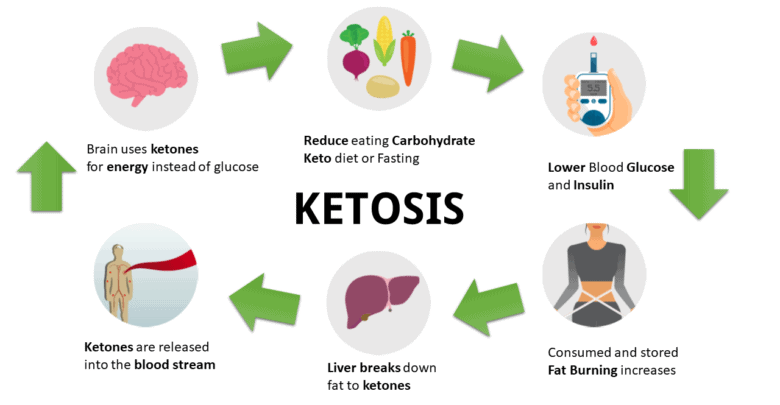In the ever-evolving landscape of diet and nutrition, various approaches claim to be the ultimate solution for weight loss. Among these, the ketogenic diet has gained significant popularity in recent years. However, it’s essential to assess how the keto diet compares to other diets when it comes to shedding those extra pounds. This article will explore the keto diet and contrast it with some of the other prominent diets for weight loss.
Keto diet vs other diets weight loss success

- Keto Diet Overview:
The ketogenic diet, or keto diet, is a low-carbohydrate, high-fat diet designed to induce a state of ketosis in the body. In ketosis, the body primarily burns fat for fuel instead of carbohydrates. This diet typically consists of high-fat foods, moderate protein intake, and very low carbohydrate consumption.
- Low-Carb Diets:
The keto diet shares similarities with other low-carbohydrate diets, such as the Atkins and South Beach diets. These diets restrict carb intake to varying degrees, promoting the utilization of stored fat for energy. While the mechanisms are similar, the keto diet tends to be more restrictive in terms of carbohydrate intake.
- Paleo Diet:
The paleo diet focuses on consuming foods that our ancestors ate during the Paleolithic era. It emphasizes whole, unprocessed foods such as lean meats, fish, fruits, vegetables, nuts, and seeds while avoiding grains, dairy, and processed foods. While the paleo diet may result in weight loss due to its emphasis on whole foods, it does not specifically manipulate macronutrient ratios like the keto diet.
- Mediterranean Diet:
Contrary to the high-fat approach of the keto diet, the Mediterranean diet is characterized by a balance of whole grains, fruits, vegetables, lean proteins, and healthy fats such as olive oil. It has been associated with various health benefits, including weight loss. The Mediterranean diet stands out for its focus on overall lifestyle rather than strict macronutrient restrictions.
- Plant-Based Diets:
Vegetarian and vegan diets emphasize plant-based foods, limiting or eliminating animal products. These diets can be effective for weight loss due to the emphasis on whole, nutrient-dense foods. Unlike the keto diet, which relies on a significant intake of fats, plant-based diets focus on carbohydrates from fruits, vegetables, and whole grains.
- Calorie Restriction:
Many weight loss approaches, irrespective of specific dietary guidelines, involve calorie restriction. The fundamental principle is to burn more calories than consumed. While the keto diet indirectly achieves this by altering the body’s metabolism, other diets, such as traditional low-fat diets, also aim to create a calorie deficit.
Conclusion:
Choosing the right diet for weight loss depends on individual preferences, health conditions, and lifestyle factors. The keto diet, with its emphasis on ketosis and high fat intake, offers a unique approach that may suit some individuals. However, other diets, such as low-carb diets, the paleo diet, the Mediterranean diet, and plant-based diets, also have their merits in promoting weight loss and overall health.
It’s crucial to consult with healthcare professionals or nutritionists before embarking on any significant dietary changes. While the keto diet may be effective for some, the best diet for weight loss is one that is sustainable, balanced, and aligns with an individual’s specific needs and preferences.
Faqs:
1. Is the ketogenic diet suitable for everyone? The ketogenic diet may not be suitable for everyone, especially individuals with certain medical conditions, such as pancreatitis or liver disease. It is essential to consult with a healthcare professional before starting any significant dietary changes.
2. How does the keto diet differ from low-carb diets like Atkins or South Beach? While the keto diet and other low-carb diets share similarities in restricting carbohydrate intake, the keto diet is typically more restrictive. It aims to induce a state of ketosis, where the body relies on fat for energy, while other low-carb diets may not have the same emphasis on high fat intake.
3. Can I lose weight without strictly following a specific diet, like the Mediterranean or paleo diet? Yes, weight loss is possible without strictly adhering to a specific diet. Calorie restriction and creating a calorie deficit can be achieved through various dietary approaches. It’s important to find a sustainable and balanced eating pattern that suits individual preferences and lifestyle.
4. Are there potential health risks associated with the keto diet? The keto diet may lead to nutrient deficiencies if not followed carefully. Potential risks include an increased risk of heart disease due to the high intake of saturated fats. Individuals with certain medical conditions, such as kidney issues, should approach the keto diet with caution.
5. How does the Mediterranean diet promote weight loss without strict macronutrient restrictions? The Mediterranean diet focuses on whole, nutrient-dense foods and promotes a balanced lifestyle. While it doesn’t impose strict macronutrient ratios, its emphasis on healthy fats, lean proteins, and a variety of fruits and vegetables contributes to weight loss and overall well-being.
6. Can a plant-based diet provide sufficient protein for weight loss and muscle maintenance? Yes, a well-planned plant-based diet can provide adequate protein for weight loss and muscle maintenance. Plant-based protein sources include beans, lentils, tofu, and plant-based protein supplements. It’s important to ensure a diverse and balanced intake of plant-based foods.
Related posts:
Unveiling the Wonders of the Keto Diet: A Powerful Ally in Weight Loss
Empowering Wellness: Customized Diet Plans for Cancer Patients
Breathe Easy: 5 Essential Respiratory Exercises for Healthy Lungs










Leave a Reply